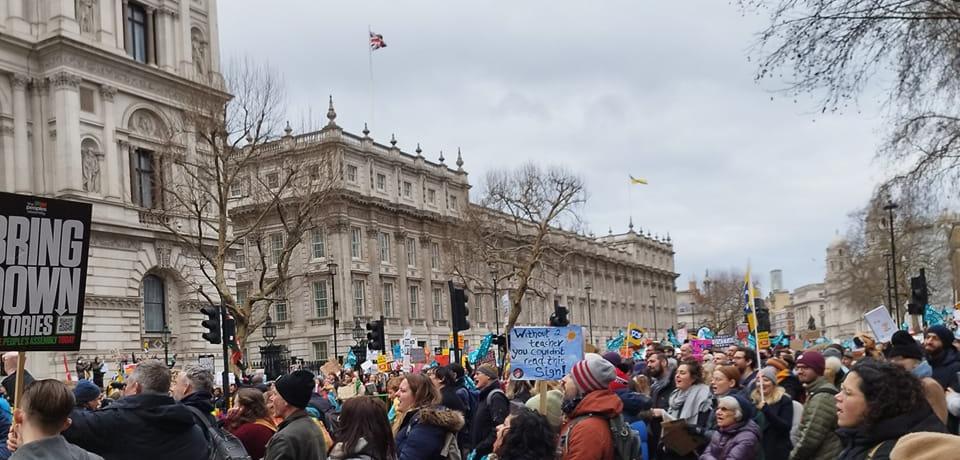
On 1 February more trade unionists in Britain will be on strike than have done so on any single day for many decades.
The civil service union, PCS, was the first to call out over 100,000 members across 124 government departments – all those members in departments who had met the ridiculously high turnout threshold in the ballot for strike action under the existing reactionary anti-union laws. Three other unions that like PCS had already won ballots for industrial action joined them in announcing they would strike on the same day.
The University and College Union (UCU - teachers in higher education has called out 70,000 members on this day as part of 18 days of action to take place across the next two months following the failure of the latest discussions with the employers to come up with an offer that would in any way restore the decimation of pay that has taken place over the last 12 years of Tory rule.
Many sectors on strike
The train drivers union ASLEF will bring out the majority of its 21,000 members on this day and on one other in February after failing to reach agreement with the employers on pay and conditions after six previous days of strike action in this dispute. The transport union RMT are also bringing out their driver members on 1 Feb and the other day ASLEF are striking. This seems like a lost opportunity from the union who in many ways has been the backbone of the strike movement as the majority of their members are not drivers but on other grades.
The final union that will be striking on 1 February is the NEU, the main school teachers union in England and Wales. (There is a separate union in Scotland which has its own programme of action which doesn’t include 1 February.) The NEU announced the result of their ballot on 16 January. They succeeded in getting strong enough results to bring all their members out in Wales but in England only teaching members will strike as not a high enough proportion of school support staff returned their ballots. At latest count, 32,000 new members had joined the union since they announced the results and the programme of action starting on Wednesday.
It's just the beginning
All this means that 1 February will be a busy day not only for strikers but for all activists. There will be picket lines at workplaces where strikes are taking place. Despite the appallingly reactionary laws there is some protection against for people refusing to cross picket lines even where they have not been called out by a trade union and left activists are working to make sure workers know their rights. Later in the day there will be demonstrations and rallies in dozens of cities across England and Wales mostly organised by the local arms of the TUC, the single trade union federation in Britain.
Many of us will be agitating that the next step in the campaign needs to be a national demonstration to stop the new Minimum Services Bill, otherwise known as the ‘Sack Nurses Bill’ that the Tories are currently rushing through parliament. 1 February is a good start but we need far more to stop this massive attack on workers’ rights.
29 January 2023
Source International Viewpoint
Terry Conway is a member of Anti*Capitalist Resistance